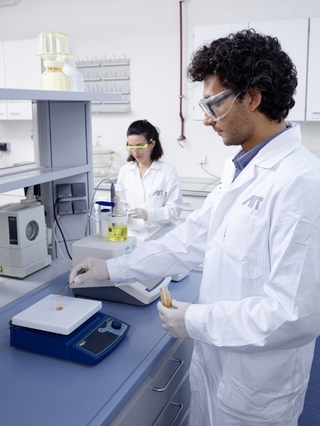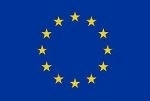AIT coordinates EU project STREAMS: A green deal for Europe's battery production
12.04.2024The fragility of current supply chains and the scarcity of critical raw materials pose major challenges for Europe's battery manufacturers. The focus of European battery production is therefore on securing sustainable supply chains and reducing dependence on critical raw materials such as lithium, nickel and cobalt. The increasing demand for batteries, particularly for electric mobility and renewable energies, has created an acute need to use our own resources more efficiently.
STREAMS research project kick off meeting
© AIT / Hainz
For this reason, a high-level European consortium led by the AIT Austrian Institute of Technology has initiated the STREAMS research project (long title: Sustainable Technologies for Reducing Europe's bAttery raw MaterialS dependance). The project, which is funded as part of HORIZON EUROPE, aims to strengthen the European supply chain by developing flexible and scalable technologies, reduce dependence on imported raw materials and promote circular economy approaches in battery production. STREAMS pays particular attention to the sustainable production of anode and cathode active materials in order to increase Europe's strategic autonomy and competitiveness.
Kick-off in Vienna: Consortium presents project key topics
AIT recently hosted a kick-off event at the AIT site in Vienna-Giefingasse, which was attended by representatives of the 19 project partners. The consortium has defined the following key topics for the next three years:
- Strengthening the European supply chain: STREAMS aims to strengthen the supply chain for battery materials in Europe, reduce dependence on imported raw materials and increase the resilience, competitiveness and strategic autonomy of the global battery production industry.
- Development of comprehensive technological solutions: The project will develop a portfolio of flexible and scalable technologies for the sustainable production of anode and cathode active materials and their precursors.
- Utilization of different material sources: STREAMS will drive the use of diverse primary and secondary sources together with recycled battery material to further reduce dependence on third countries.
-
 The AIT battery lab
The AIT battery lab
© AIT / Lang Circular economy models for sustainability: STREAMS will identify optimal conditions for the future use of the project results through the development of circular models, pilot scale production of battery cells and extensive testing according to established standards.
A significant step towards circular battery production
The overall coordination of the project is being carried out by AIT, which is also substantially involved in the direct research work. The experts in the Battery Technologies Competence Unit are integrating sustainably produced active cathode and anode materials into prototype cells made from recycled, reconditioned and reused battery-grade intermediates. The overarching goal is to develop materials and cells that exhibit outstanding electrochemical performance and can ultimately compete with conventional battery systems. In addition, AIT researchers optimize environmentally friendly, aqueous slurry formulations for electrode coating and act as a central interface between laboratory and pilot-scale electrode processing.
 Project leader Damian Cupid
Project leader Damian Cupid
© AIT / Lang
Damian Cupid, AIT Senior Scientist and project leader of STREAMS, explains: "By developing sustainable technologies to integrate and harmonize the production of active cathode and anode materials from primary sources, secondary sources and end-of-life batteries, we are making a significant contribution to strengthening the environmental circularity of the European battery materials ecosystem. At the same time, this promotes strategic autonomy, increases competitiveness and strengthens the resilience of the sector."
Projektkonsortium
- AIT Austrian Institute of Technology GmbH (Koordination)
- ETI GÜBRE
- GTEC
- Sipow AS
- Instytut Sorbtsiyi Ta Problem Endoekolohiyi Natsionalnoyi Akademiyi Nauk Ukrayiny
- University of Oulu
- Leitat Technological Center
- Treibacher Industrie AG
- Université de Liège
- Nanopow As
- TÜBİTAK
- Łukasiewicz – IMN
- Enviva
- F6S Innovation
- Ukrainian Research And Design Institute Of Electrothermal Equipment
- Evolution Energy Minerals
- American Energy Technologies Company
- Imperial College London
- University of Warwick

The "STREAMS" project has received funding from the European Union's Horizon Europe research and innovation program under grant agreement no. 101137771.
